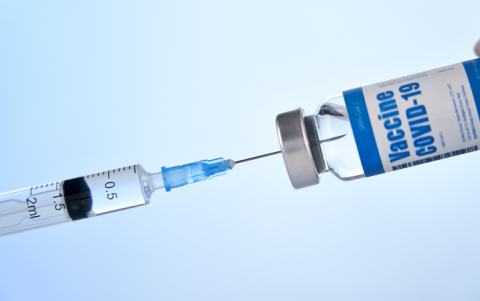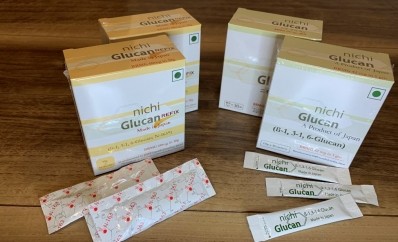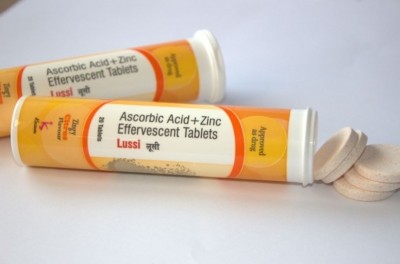Probiota Asia: Experts assess pioneering microbiome research on immunity, bone and joint health amid COVID-19
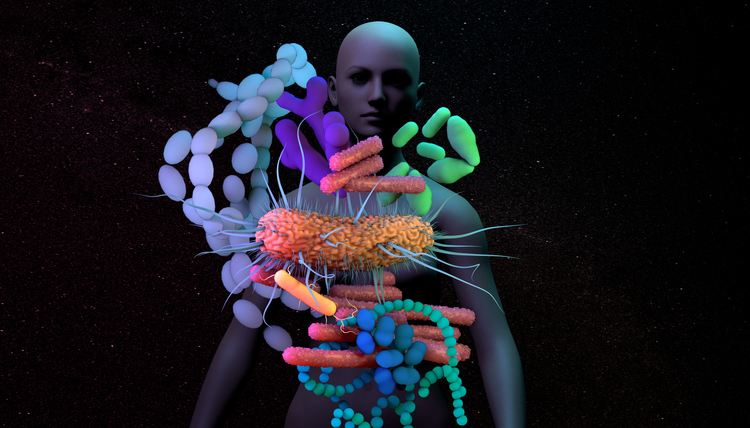
Bone, joint, and metabolic health are also at the forefront of microbiome research in response to the ageing population, said a group of expert panellists during the first day of Probiota Asia 2021 Digital Summit.
The Probiota Asia 2021 Digital Summit is a four-day online event organised by NutraIngredients-Asia.
The event started off on Tuesday (Oct 26) with presentations and an expert panel discussion on the topic “Scientific Breakthroughs: Cutting-edge Microbiome Research Amid the Pandemic.”
A key point brought up during the event was how the body’s microbiome could affect vaccine efficacy.
For example, dysbiosis in the gut microbiome – caused by exposure to antibiotics – has been shown to produce poorer vaccine responses in both a mouse model and an ongoing study involving infants, said keynote speaker professor David Lynn, EMBL Australia group leader and program director at The SAHMRI Precision Medicine Theme.
“We found that antibiotic exposure results in significant changes in how the infant responds to immunisation," Prof Lynn said, pointing out that infants exposed to antibiotics showed increased expression of inflammatory response and monocyte related genes and decreased expression of genes related to B cells.
“The data shows that antibiotic exposure in the infants likely [affect the gut microbiota] by changing the composition of the microbiome that influences immune responses to vaccination on gene expression level."
The relationship between the gut microbiome makeup and vaccine immunogenicity was also brought up by Prof Siew C Ng, associate director of Centre for Gut Microbiota Research at The Chinese University of Hong Kong.
In her presentation, she pointed out that the restoration of gut dysbiosis might improve vaccine response, on top of acting as an adjuvant treatment to help speed up recovery in COVID-19 patients.
In fact, in the early days of the pandemic, Prof Ng and her team had already observed that the gut microbiota composition in COVID-19 patients was distinct from people who were not infected with the virus.
“COVID-19 patients were depleted in known gut bacteria that have immunomodulatory potential.
“The composition of the gut microbiota in COVID-19 patients is concordant with disease severity and magnitude of concentrations of inflammatory markers,” Prof Ng said.
In other words, the human gut is also a target of the COVID-19 virus.
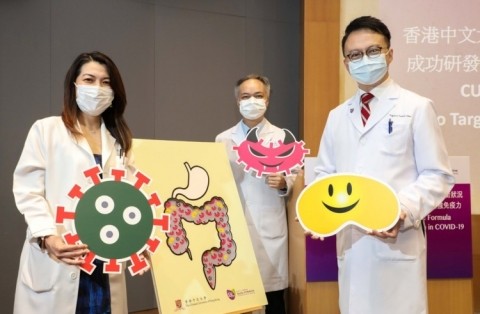
“What we learned early in the pandemic is that COVID-19 is not only a respiratory disease. The human gut is a target [as well]. The virus can be found in different parts of the human intestine. This stems from our understanding that the viral ACE2 is highly expressed in the human gut.”
She added that the lasting compositional differences in gut microbiota – even though the virus had cleared – could contribute to symptoms of ‘long COVID’.
Ageing needs
Aside from COVID-19, there is also research on the microbiome, probiotics, and age-related diseases, including bone and joint health problems.
In the case of China, addressing ageing related concerns is on top of mind for nutrition giants such as Yili, since this is part of the country's Healthy China 2030 vision.
In China, with the increasing demand of the customer for the health and the promotion of Healthy China 2030 strategy, the probiotics industry is [now] in strong development. According to the estimates, the Chinese population's ageing problem will enter into a period of acceleration after 2023.
Keynote speaker, Dr William Hung, director of scientific research and head of probiotics research centre at Yili.
The company is responding to bone health needs with its patented strain Bifidobacterium Lactis BL-99, which Dr Hong said could promote digestive health and also prevent osteoporosis based on the gut-bone axis.
On top of that, he highlighted the firm’s three other patented strains that are also relevant to the vision of Healthy China 2030.
They are Lactobacillus paracasei K56 for metabolic health, Lactobacillus paracasei ET-22 for oral health, and Bifidobacterium infantis YLGB-1496 for skin health.
“Healthy oral cavity, healthy weight, and healthy bones will be the key areas of the policy [Healthy China 2030] promotion,” he said.
Addressing ageing needs through microbiome modulation was also discussed during the panel discussion segment of the event.
The panel discussion included Prof Lynn, Dr Samuel JK Abraham, head of R&D at GN Corporation, Dr Michael Colon, principal research scientist at Australia’s national research agency CSIRO’s Health and Biosecurity unit, and Professor Balamurugan Ramadass, additional professor at the All India Institute of Medical Sciences (AIIMS), Bhubaneswar.
For example, Professor Ramadass had observed from his research the presence of the gut-joint axis.
Specifically, it was found that knee osteoarthritis patients have a different gut microbiome composition from healthy individuals, and that vitamin D is a modulating factor.
“In continuation to our initial proof of concept study, we are now trying to supplement these patients with vitamin D.
“We are looking at the immune phenotype, the change in immune the response before and after vitamin D supplementation…There is definitely that strong gut joint axis,” he said.
Beta-glucan, new pre/probiotic candidates
Research on new pre/probiotic candidates and beta-glucan for modulating the gut microbiota was also discussed during the panel discussion.
For instance, there is now research on using marine sources as a potential prebiotic, according to Dr Colon.
“There are a lot of commonly found fibres that people use as prebiotics to influence gut health.
“There's a real interest in finding new forms of fibres or other molecules, [especially] in finding easily extractable forms, environmentally friendly forms of fibres etc that make economic sense.
“So, it's a combination of finding new things and potentially new ways of modulating the gut microbiota with fibres or polyphenols, and also, hopefully finding better ways of producing nutraceuticals,” he said.
Using a germ-free mice model to find out the probiotic strains that could best support vaccine immunogenicity was also proposed.
Prof Lynn said that through this model, he has found that mice colonised with certain probiotics had significantly improved responses to immunisation.
“Germ free mice has impaired responses to some but not to all vaccines and this provides a useful model to identify specific types of probiotics that can restore responses to vaccination,” he said.
In addition to pre/probiotics, Dr Abraham is also studying how beta-glucan could affect the gut microbiome.
This is an extension to his previous research on how beta-glucan supplementation could reduce cytokine storm and coagulopathy biomarkers in COVID-19 patients.
“There is one beta-glucan, which is an immune enhancer and the other, which is an immunomodulator. So [in our previous], we did a three-arm trial, namely a control group, a group supplemented with the immune enhancer form of beta-glucan, and another group supplemented with the combination of immune enhancer and immunomodulator forms of beta-glucan,” he said, describing the trial design.
“What we interestingly found was that the interleukin-6 and D-dimer were brought under control for a longer duration, of say up to 30 days, when you combine both the immune enhancer and immunomodulator beta-glucan,” he said.
D-dimer is said to be a good predictor of mortality in COVID-19 patients, where a higher level is associated with severe infections and even deaths.
